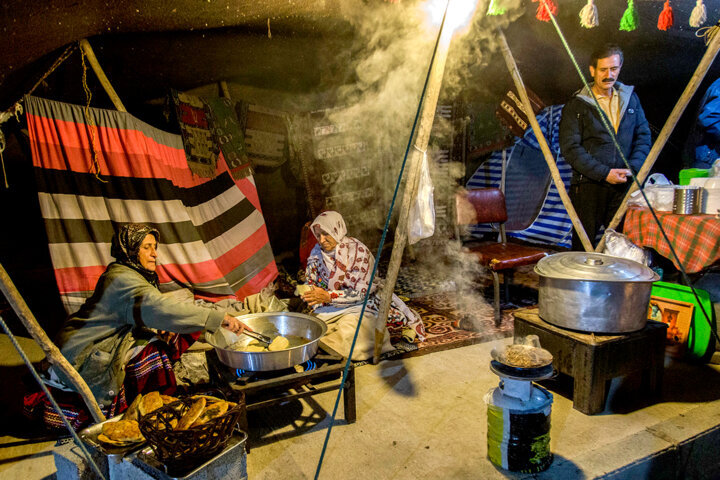Azarbaijan’s ethnic diversity ideal opportunity for ecotourism

TEHRAN –Ethnic diversity in northwestern West Azarbaijan province is an ideal basis for ecotourism development, a tourism expert has said.
Boosting ecotourism in this region is a viable option due to its ethnic diversity, Vadud Fakhari explained on Friday.
There are a variety of ethnic groups and religions in West Azarbaijan, which makes it a perfect setting for the growth of ecotourism, he added.
The nearby three countries also provide opportunities for ecotourism to prosper in this province, as well as for the expansion of eco-lodge units to accommodate potential tourists from these countries, he noted.
Another capacity for the growth of ecotourism is the existence of 3,000 villages with unique historical attractions since tourists are increasingly interested in the natural and historical attractions of these villages as well as their lifestyles, he mentioned.
West Azarbaijan embraces a variety of lush natural sceneries, cultural heritage sites, and museums including the UNESCO sites of Takht-e Soleyman and Qareh Klise (St. Thaddeus Monastery), Teppe Hasanlu and the ruined Bastam Citadel.
The region has been the seat of several ancient civilizations. It formed part of Urartu and later of Media. In the 4th century BC, it was conquered by Alexander the Great and was named Atropatene after one of Alexander’s generals, Atropates, who established a small kingdom there. The area returned to Persian (Iranian) rule under the Sasanians in the 3rd century CE. The Arabs controlled Azerbaijan from the 7th century until Turkish nomads overran it in the 11th century. Thenceforth, the inhabitants of the region were Turkish speakers. The region was overrun by the Mongols in the 13th century, and, under the ruler Hulegu, Azarbaijan became the center of a Mongol empire extending from Syria on the west to the Oxus River (now Amu Darya) on the east.
As a four-season country with pristine and beautiful nature in different parts of the country, Iran has a lot to offer nature lovers and eco-tourists. Eco-lodge units in rural areas and the heart of nature, away from the hustle and bustle of the city, smoke, and pollution, could free people from the chaos and turmoil of modern life.
In recent years, several historical mansions and rural houses across the country have been repurposed into eco-lodge units to attract more domestic and foreign tourists.
The houses represent the indigenous culture, local customs, traditions, and stories, while the guests are served delicious food with local ingredients.
The growing tendency of tourists to experience indigenous and local cultures has made them want to get closer to natural and indigenous living conditions, experiencing the old-fashioned way of life, considering that staying in these eco-lodge units is much cheaper than other accommodation centers.
Iran’s tourism body said in 2018 that 2,000 eco-lodges will be constructed nationwide until 2021. Experts say each eco-lodge unit generates jobs for seven to eight people on average, so the scheme could create 160,000 jobs.
Having a very diverse natural setting, Iran offers varied excursions to nature lovers. Sightseers may live with a nomad or rural family or enjoy an independent stay. The country is home to abundant historical mansions, caravanserais, bathhouses, madrasas, and other massive monuments, which can buttress its budding tourism and hospitality sectors if managed appropriately and refurbished properly.
ABU/AM
Leave a Comment